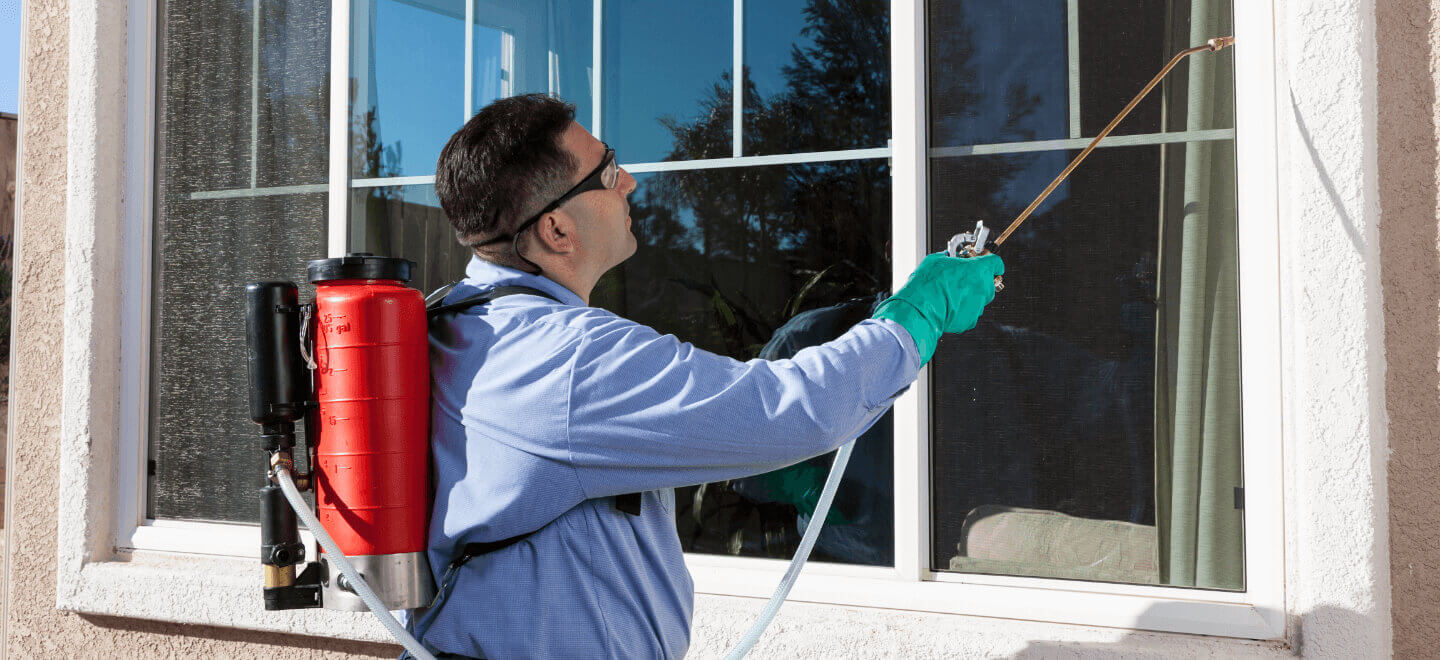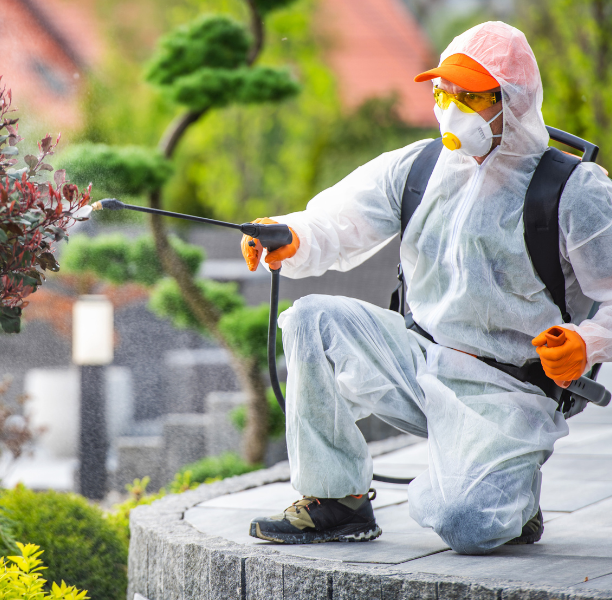Effective Coquitlam Pest Control Solutions for a Pest-Free Environment
Effective Coquitlam Pest Control Solutions for a Pest-Free Environment
Blog Article
Safe and Trusted Bug Control for Lasting Protection
Effective parasite management needs a complex strategy that stabilizes environmental honesty with the need for effective insect suppression. The nuances of these techniques might not be instantly clear, prompting a more detailed exam of the methods that can lead to sustainable bug control results.
Comprehending Insect Control Methods
Pest control encompasses a selection of methods targeted at managing and getting rid of unwanted insects and rodents that can intimidate both wellness and property. Recognizing these approaches is essential for effective parasite monitoring.
The main categories of parasite control methods include mechanical, biological, and chemical methods. Mechanical approaches include physical obstacles and catches to avoid bug entrance and capture undesirable types. As an example, utilizing screens on windows or utilizing sticky traps can significantly reduce bug populaces without introducing harmful substances.

Chemical insect control is frequently the most acknowledged technique, utilizing pesticides to remove bugs. These chemicals can be reliable yet should be utilized with care to stay clear of damaging impacts on non-target varieties and the setting.
Advantages of Eco-Friendly Solutions
Exactly how can environmentally friendly solutions change bug control techniques? The adoption of environment-friendly parasite control methods offers countless benefits, significantly enhancing the performance and safety and security of parasite monitoring.

Another advantage is the favorable effect on local biodiversity. Environment-friendly options are made to target certain pests while protecting useful insects and wildlife, promoting a balanced ecosystem. This approach straightens with the expanding consumer demand for sustainable practices, enhancing the track record of bug control service providers.
Integrated Bug Monitoring Approaches
The implementation of environmentally friendly remedies normally causes the fostering of Integrated Pest Management (IPM) approaches, which further enhance insect control efficacy. IPM is a holistic strategy that combines several tactics to take care of bug populaces while decreasing environmental impact. This strategy emphasizes the usage of organic, social, mechanical, and chemical controls, ensuring a sustainable and balanced technique of parasite administration.
One basic element of IPM is the extensive evaluation of parasite activity and ecological conditions. By keeping an eye on insect populations and recognizing their life cycles, professionals can carry out targeted treatments that interrupt the bug's environment or lifecycle, decreasing dependence on chemical pesticides. Furthermore, cultural techniques such as plant turning and habitat manipulation can considerably lessen parasite facility and recreation.
An additional important part is making use of organic control representatives, such as helpful insects or bacteria, which can normally subdue bug populations. When chemical applications are necessary, IPM prioritizes making use of low-risk pesticides and uses them uniquely, reducing exposure to non-target microorganisms and human beings.
Incorporating IPM strategies not only enhances parasite control performance but additionally promotes a more secure ecological community, lining up with the growing demand for lasting practices in pest monitoring.
Safe Practices for House Owners
Recognizing the significance of secure practices in insect control can equip property owners to efficiently handle bug concerns while safeguarding their health and wellness and the atmosphere. Applying precautionary measures and non-toxic methods is essential in minimizing direct exposure to harmful chemicals.
House owners should first analyze their environment for problems that bring in pests, such as standing food, clutter, and water waste. Routinely cleaning and securing access factors can discourage parasites from invading the home. Utilizing all-natural deterrents, such as essential oils or diatomaceous planet, can give effective choices to chemical pesticides.
When chemical treatments are required, homeowners should choose items that are specifically labeled as risk-free for property use. It is important to follow application standards diligently to avoid overexposure. In addition, making use of targeted therapies in locations where pests are determined, rather than blanket splashing, can significantly minimize chemical usage.
Last but not least, keeping open communication with pest control specialists is important. Property owners should ask about the security of items used and request eco-friendly options whenever possible. By adopting these safe practices, home owners can produce a much healthier living setting while successfully managing bug issues.

Tips for Long-Term Security
Establishing an insect administration strategy that highlights long-term security can significantly improve the efficiency of the safe techniques formerly talked about. To achieve this, homeowners should implement regular assessments of their residential property, concentrating on concealed locations such as attics, basements, and crawl areas. Early detection of bug task is important in stopping invasions from holding.
Furthermore, keeping a tidy environment is best termite prevention crucial. This includes correct food storage space, promptly cleaning up spills, and consistently throwing away garbage. These techniques decrease attractants that attract insects into the home. Sealing access points, such as splits around doors and windows, can effectively block possible parasite gain access to.
Landscape design needs to additionally be considered; maintaining plants cut and preserving a distance between plant life and the home lessens concealing places for bugs. Making use of natural deterrents, such as important oils or diatomaceous earth, can additionally discourage infestations without considering harsh chemicals.
Lastly, working together with a professional bug control service for regular assessments can supply an drywood termite control additional layer of security. These experts can offer customized referrals and advanced therapies, ensuring that your home stays protected versus pests in the lengthy term.
Final Thought
To conclude, reliable and secure parasite control needs a diverse strategy that highlights environment-friendly techniques and integrated bug monitoring. By applying all-natural deterrents, carrying out normal evaluations, and keeping proper cleanliness, homeowner can significantly minimize pest populations while protecting useful insects and the environment. Collaboration with expert bug control services enhances the efficiency of these methods, ensuring tailored remedies that supply long-term defense and comfort versus future infestations.
Efficient bug administration requires a diverse technique that balances ecological honesty with the requirement for efficient pest reductions. The fostering of environment-friendly parasite control approaches provides numerous advantages, substantially boosting the efficiency and security of bug management.The application of eco-friendly services normally leads to the adoption of Integrated check over here Parasite Management (IPM) techniques, which additionally boost pest control efficacy. exterminator coquitlam. By keeping track of insect populaces and recognizing their life cycles, professionals can execute targeted interventions that disrupt the bug's habitat or lifecycle, decreasing reliance on chemical pesticides.In verdict, risk-free and trustworthy bug control needs a diverse method that emphasizes eco-friendly techniques and integrated parasite management
Report this page